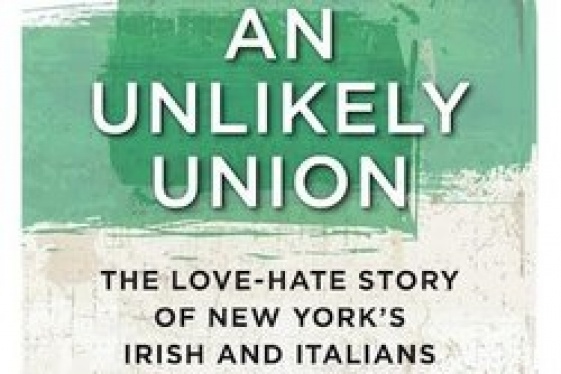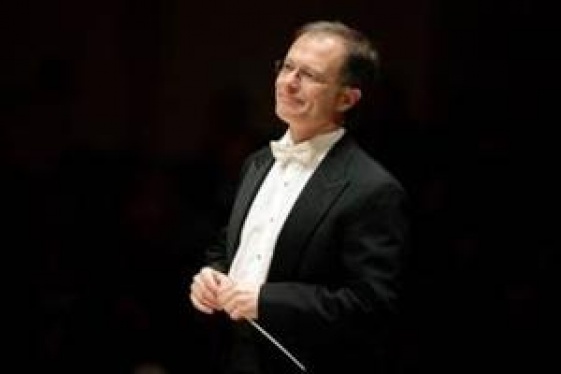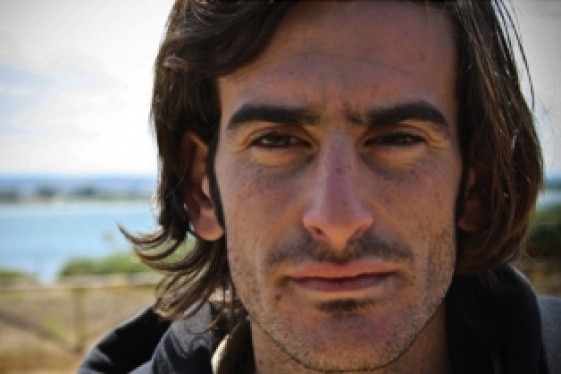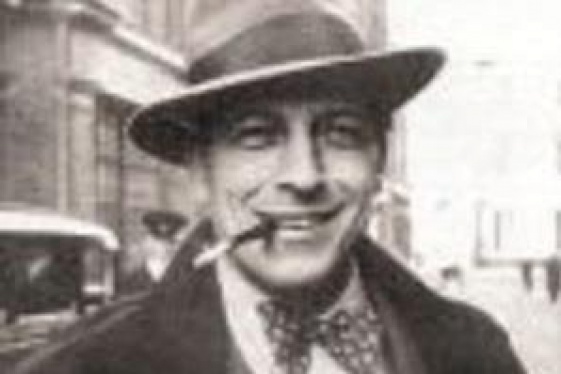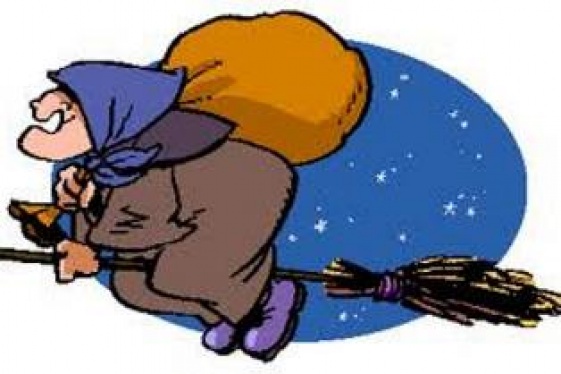
Mario Fratti (Playwright and Tony Awards Winner)
Mario Fratti: il teatro italiano a Broadway

Broadway is one of the most famous and sparkling iconographic representations of the American leadership in the world. It is "the myth" for every actor, screenwriter, director, choreographer: for anyone who dreams of being part of the show business. In Broadway, Italy is not very much represented: unlike other areas in which Italian Americans have climbed one by one the steps of the ladder of success, in Broadway there is only one. But a great one.
His name is Mario Fratti, the author of many successful works, the most important of which has won many awards and stayed on stage for a long time: it is called "Nine" and tells about the story of one of the greatest Italians ever in the show business, Federico Fellini. We meet him in his home in New York, where exactly 50 years ago he decided to move. And we thank him for his great kindness and availability.
Master Fratti, you are a true icon of Italian theatre in the United States. Please tell us something about your relationship with this wonderful country. You are celebrating now the 50th anniversary of your arrive here, right?
In Italy I was active in the theatre, and I even won 33 awards. But in Italy there's a tendency to ignore Italian writers. I know at least ten more playwrights in Italy who are as good as I am, but they have no success because Italian theatre just pays no attention to them. America is more open-minded: you come to this country, you say "I'm a playwright". They say "welcome, give me the script". If they like the script, they buy it, that's it. It's the same for a singer, or an actor. So the doors are open. The difference is that here in the US they trust you; in Italy they generally ignore you.
Your greatest success is "Nine", inspired by the masterpiece 8½ by the great Federico Fellini. What's your feeling about this great work, which is your most known, and why do you think it had such a huge success winning 7 Tony awards and doing more than 2000 encore?
It works, because I changed the original 8½. The original movie was a real great masterpiece. But on Broadway, it would have bored the audience to death. So when I started this enterprise, I started it with a play. It's a play of mine called "Six passionate women", and it's the life of Fellini. So, inspired by the life of Fellini, I started a musical with a good young composer I discovered. He is a teacher at Yale. And so, Nine is completely different from 8½. Everybody says that Nine is inspired by 8½ by Fellini, but it's really the life of Fellini as written by Fratti in "Six passionate women". An example. The most important reason why it had such a success on Broadway, is the fact that I invented the scene where Fellini goes to Venice to shoot Casanova. So, in a way, we say that Nine is based on 8½, but in reality it is all changed: 10% is 8½ and 90% is my play and the film Casanova.
Do Americans know Fellini and his works?
People who are 50, up to 90, know him; they actually adore him. The younger generation doesn't. Now and then I ask about Fellini, and his masterpieces, and young people look at me with amazement asking who he was.
Is there a play of yours that you bring in your heart? And are there any that you feel had not the success they deserved?
Well there's a play which was started in Milan, it was called "The cage", which has been very successful in America too. It's inspired by Chekhov, and this is maybe the first that comes to my mind when I think about my works.
Then, there are at least ten plays I wrote here, that are better than Nine. They have productions here and there but are not considered hits. Critics are curious about my work; they say that I'm a link, a bridge between European culture and American culture.
Broadway and the Italians: are there other success stories, besides yours?
Unfortunately, the Italian American audience usually does not go to theatre. They don't have the tradition to do that. Consequently, producers are reluctant to hire Italian actors or playwrights. A play by Ugo Betti lasted only three weeks. A play by Luigi Pirandello, only five months. So there is no Italian play that lasted two years like Nine. Nine is different, because it's a combination of Italian irony and American Broadway style. The Italian plays just do not sell too many tickets, so now it's difficult to bring them here: the best audience is Anglo-Saxons, Jews, African Americans. For my musical Nine we only had the attendance of 10% Italian Americans.
Has it always been like that?
Yes. The first generation that came here was generally made by peasants, farmers, manual workers who actually never went to a concert or to a play when they lived in Italy. This tradition passed from grandparents to parents and to children. Drama does not appeal to Italian-Americans. They prefer Opera and they follow great singers.
Unfortunately, in every play, film or television the Italians are negative characters. There's a tendency to see Italian Americans as Machiavellian individuals you cannot trust.
When I teach theatre classes, I always recommend my students to put good characters of Italian heritage, talented and honest men and women. In their scripts they should use Italian names for positive protagonists.
You have recently been awarded in Italy with the Capri award for your novel "Diario Proibito", which tells about your hometown, L'Aquila, during the second world war. Will it be published in the United States, too?
The story of this book is very unusual. I wrote this novel when I was twenty and it's published only now, 60 years later. I had completely forgotten I had written it. I found it in a suitcase. Before that, when people asked me when I started writing, I always said at thirty, because that's when I started writing plays.
My Italian at that time was very rich, like Moravia's. Now it is completely changed. It is more concise, more precise, more "American". Translating the novel will be difficult work, because of the richness of the language. My plays are translated in 19 languages: they are clear, telegraphic. That's why they are translated so often. But translating this novel will be a very difficult task.
Please tell us something about your last play, which has been represented in New York until a few days ago, regarding the story of Emanuela Orlandi. Did it take courage to address an issue like this, with a title like "The Vatican Knows (about the kidnapping of that young woman)"?
Well, things are coming out now about a possible plot by some cardinals to diminish the figure of the polish Pope. There are many rumors, but sure, I am daring when I write about a delicate subject. I wrote about Pinochet, Che Guevara, Kissinger. I like to write about political themes. In the play "The Vatican Knows" we show the possibility of a blackmail about the kidnapping of Emanuela Orlandi. The terrorists want to exchange her with Ali Agca, the man who tried to kill the Pope John Paul II. I created a play based 80% on reality, with some imagination. I knew Tennessee Williams and once he told me that, to him, every play must be based on reality, autobiography and imagination. I had a great cast and the actress Giulia Bisinella was wonderful in making us feel the suffering and fear of Emanuela.
The play received 7 great reviews; they loved it. It will be presented in theatres in Europe and Asia.
By the way, the new Pope Francis, who is really a great man, is very interested in discovering what happened in the Vatican in those years. He's the only Pope interested in talking to Emanuela's brother. It's the first time that someone from the Vatican listened to him, to his opinion about what happened when his sister was kidnapped.
You may be interested
-
An Unlikely Union: The love-hate story of Ne...
Award-winning author and Brooklynite Paul Moses is back with a historic yet dazzling sto...
-
Candice Guardino Brings GILDA AND MARGARETTE...
Candice Guardino is adding to her list of successful theatrical productions with the debut...
-
Cathedral of St. John the Divine, Oratorio S...
For the first time ever, The Cathedral of St. John the Divine, in collaboration with the O...
-
Davide Gambino è il miglior "Young Italian F...
Si intitola Pietra Pesante, ed è il miglior giovane documentario italiano, a detta della N...
-
Garibaldi-Meucci Museum to Celebrate Ezio Pi...
On Sunday, November 17 at 2 p.m., Nick Dowen will present an hour-long program on the life...
-
Italian Master Drawings From The Morgan (Onl...
The Morgan Library & Museum's collection of Italian old master drawings is one of the...
-
Italian Women Trailblazers - Young Professio...
April 16, thursday - 6,30 EDTAzure - New York, NY - 333 E 91st St, New York 10128Tick...
-
La Befana makes her way to the Garibaldi-Meu...
Saturday, January 10at 2:00pm - 4:00pm, Garibaldi-Meucci Museum 420 Tompkins Ave, Staten I...





